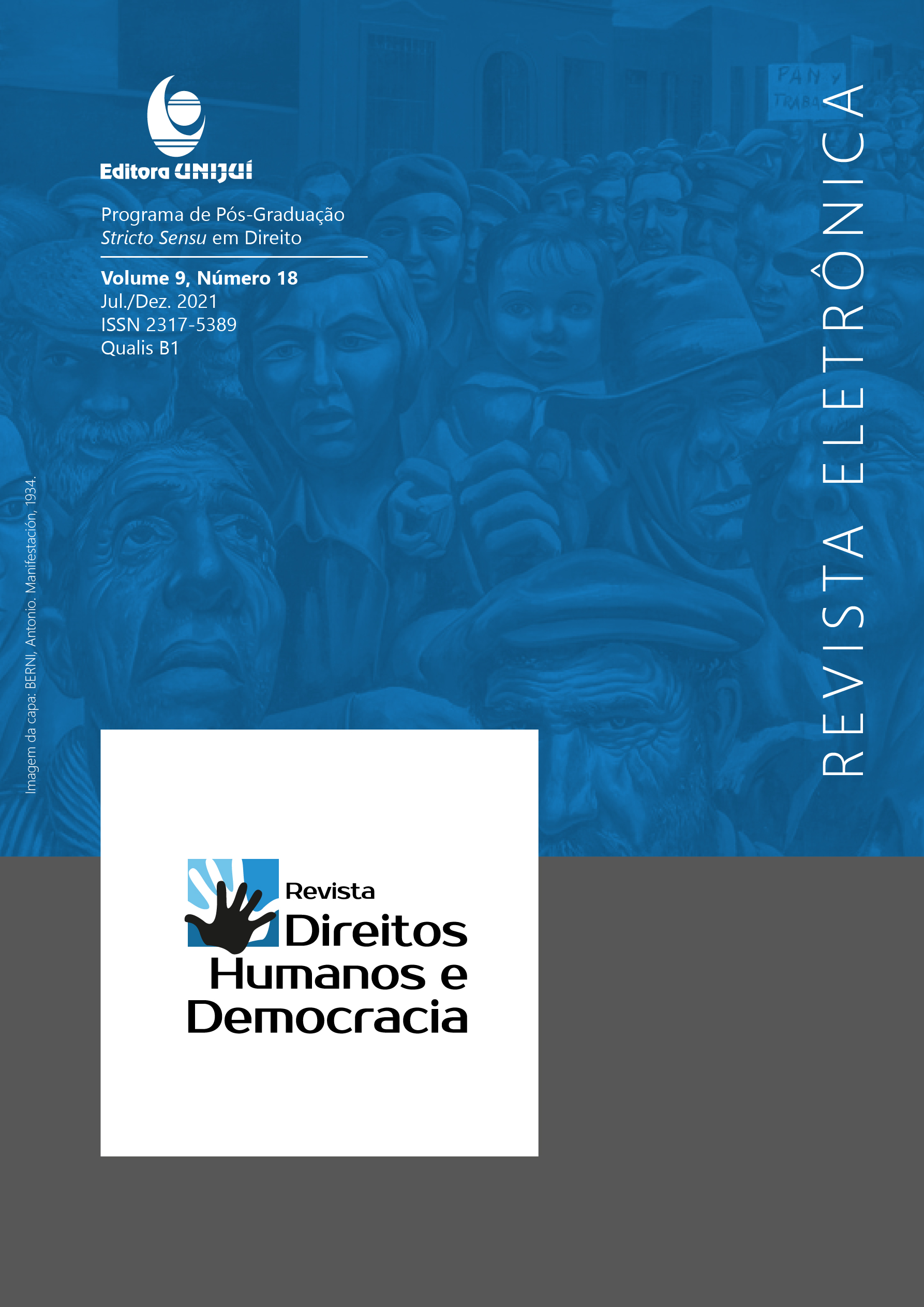OS MECANISMOS DE PARTICIPAÇÃO POPULAR NA GESTÃO DO MEIO AMBIENTE À LUZ DO TEXTO CONSTITUCIONAL: ASPECTOS POSITIVOS E NEGATIVOS
THE POPULAR PARTICIPATION MECHANISMS IN ENVIRONMENTAL MANAGEMENT TO LIGHT THE CONSTITUTIONAL TEXT: STRENGTHS AND WEAKNESSES
DOI:
https://doi.org/10.21527/2317-5389.2021.18.5723Resumo
No Brasil, a questão ambiental passou a ter relevância jurídica, pois o direito de viver num ambiente ecologicamente equilibrado foi erigido à categoria de Direito Humano Fundamental. Sob a perspectiva da Constituição Federal e da legislação infraconstitucional, o presente artigo analisa a participação popular nas decisões ambientais. Após, aborda-se os fundamentos constitucionais do direito à participação e os princípios que o norteiam. Posteriormente, menciona-se quais são os mecanismos disponibilizados pelo direito para viabilizar esta participação na seara do direito ambiental. Por fim, discute-se se a previsão legal destes mecanismos é suficiente para garantir a efetividade do direito à participação. Palavras-chaves: audiências públicas; democracia; meio ambiente; participação popular.Downloads
Publicado
Como Citar
Edição
Seção
Licença
Ao publicar na Revista Direitos Humanos e Democracia, os autores concordam com os seguintes termos:
Os trabalhos seguem a licença Creative Commons Atribuição 4.0 Internacional (CC BY 4.0), que permite:
Compartilhar — copiar e redistribuir o material em qualquer meio ou formato;
Adaptar — remixar, transformar e criar a partir do material para qualquer fim, inclusive comercial.
Essas permissões são irrevogáveis, desde que respeitados os seguintes termos:
Atribuição — os autores devem ser devidamente creditados, com link para a licença e indicação de eventuais alterações realizadas.
Sem restrições adicionais — não podem ser aplicadas condições legais ou tecnológicas que restrinjam o uso permitido pela licença.
Avisos:
A licença não se aplica a elementos em domínio público ou cobertos por exceções legais.
A licença não garante todos os direitos necessários para usos específicos (ex.: direitos de imagem, privacidade ou morais).
A revista não se responsabiliza pelas opiniões expressas nos artigos, que são de exclusiva responsabilidade dos autores. O Editor, com o apoio do Comitê Editorial, reserva-se o direito de sugerir ou solicitar modificações quando necessário.
Somente serão aceitos artigos científicos originais, com resultados de pesquisas de interesse que não tenham sido publicados nem submetidos simultaneamente a outro periódico com o mesmo objetivo.
A menção a marcas comerciais ou produtos específicos destina-se apenas à identificação, sem qualquer vínculo promocional por parte dos autores ou da revista.
Contrato de Licença: Os autores mantém os direitos autorais sobre seu artigo, e concedem a Revista Direitos Humanos e Democracia o direito de primeira publicação.













